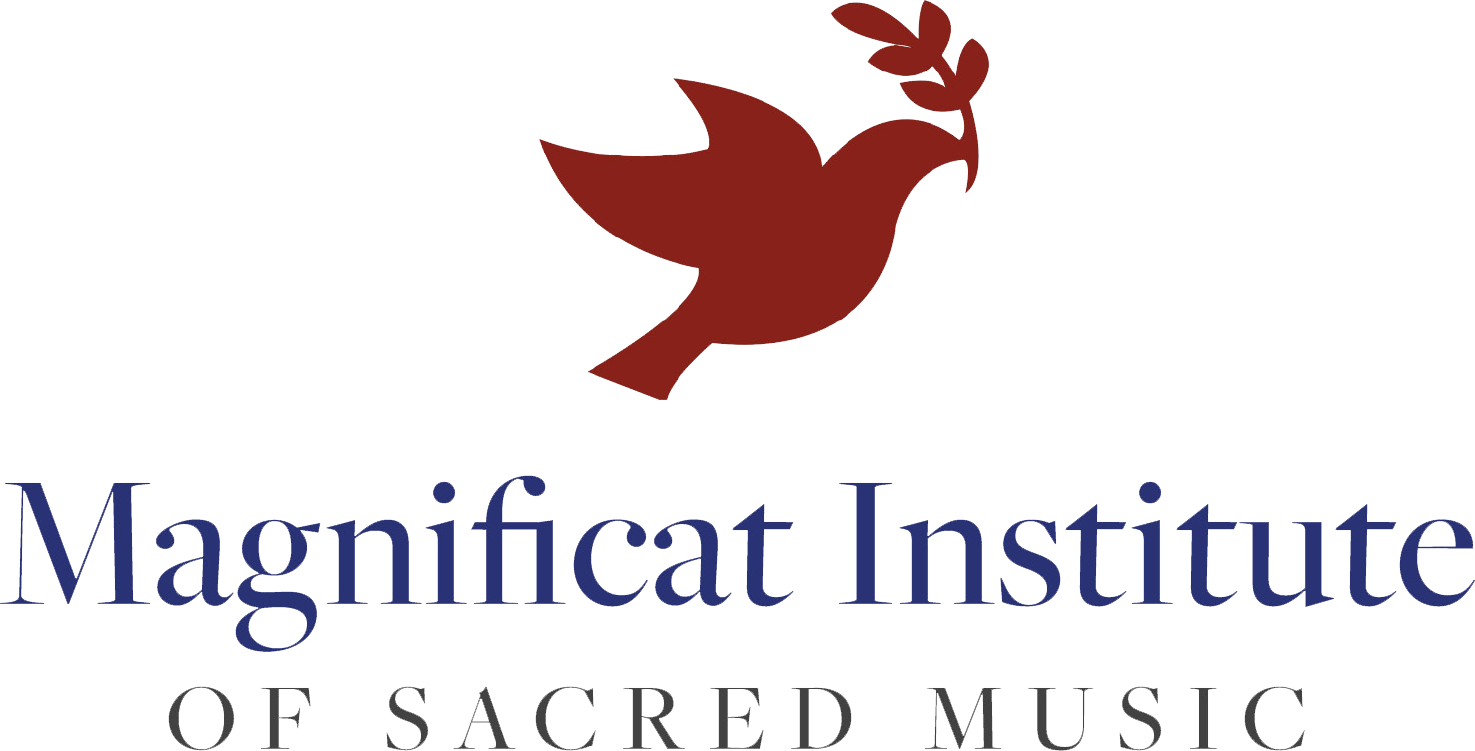We have begun providing workshops and consulting for parishes and seminaries.
If you are interested in workshops or consulting for your parish or community, please contact us!
"There is a whole truth of things, and... in knowing it and speaking it we are happy." -G.K. Chesterton
For Parishes and Communities
The great traditions of sacred music in the Catholic Church have historically formed an integral part of the Church's Sacred Liturgy. They reveal the Liturgy's transcendent beauty and draw people into its Mystery of reverent worship, transformation, and loving communion. These traditions are by nature living, and have within themselves the seeds of further adaptation and growth: such was the case, in the West, with the development of Gregorian Chant in the first millennium, and the flourishing of sacred polyphony in the Renaissance. Although this is the heritage of all Catholics and indeed of all Christians, it has often been neglected, especially in recent times.
Magnificat Institute seeks to facilitate the rediscovery, integral continuation, and inspired development of this living heritage, in the Liturgies of parishes and communities throughout our country and world. Through workshops, seminars, and consulting, we aim to provide a well-tailored formation which best fits the particular needs of each group. Our approach is first of all practical in seeking to meet immediate needs for the implementation of authentic renewal in a given situation. In the long-term, this practical dimension needs to be undergirded by a holistic approach which also encompasses the theoretical, spiritual, and apostolic dimensions of Catholic sacred music.
Here are a few of the essential issues and questions which we address in each facet of our formation, so as to happily “know and speak the whole truth of things” as Chesterton has so aptly reminded us.
THEORY
History / Philosophy / Theology
understanding what the Sacred Liturgy and its music is, in its historical reality, East and West, and in the intention of Christ.
understanding the importance of singing the Liturgy; the nature of traditional Catholic sacred music as distinguished from secular music and non-liturgical religious music.
understanding the relationship between the exterior and interior (“active” and “contemplative”) dimensions of participation in the Liturgy and its music...
PRACTICE
Repertoire / Artistry / Logistics
how to find, choose, and teach appropriate repertoire; “treasures new and old”.
how to sing with appropriate skills – accessible in the most humble circumstances as well as in those with an abundance of resources.
how to address the many logistical and technical issues which are also important aspects of renewal.
SPIRITUALITY
Prayer / Virtues / Charisms / Interiority of Liturgy
from the humble perspective of church musicians; whenever possible our formation will include the participation of a priest who is also a seasoned spiritual director.
understanding the essential virtues, natural and supernatural, which are the foundation of any work of renewal.
understanding the role of charisms – spiritual gifts – in the singing of sacred liturgical music.
entering into the interior / contemplative dimension of the Liturgy, to which its exterior aspects, including sacred music, are oriented.
APOSTOLATE
Education / Culture / Evangelization
how to establish a sound educational program for children as well as adults, in music and particularly in sacred music.
how parish sacred music programs can be a force for the transformation of our culture; the role of creativity/artistry, and of secular and religious music, in the transformation of culture.
how sacred music is a vitally important component of evangelization.
how sacred music can be a powerful tool in the pursuit of Christian unity.
For those interested in learning more about the sacred liturgical music of the Catholic Church, there is a wealth of reading materials and media links which can be of much benefit, even outside of a formal formation such as that described above. We invite you to explore some of the materials and links, as well as Paul’s blog and various interviews in which he has participated in:
Magnificat Institute does not and shall not discriminate on the basis of race, color, religion, sex, age, national origin (ancestry), disability, or military status, in any of its activities or operations.






